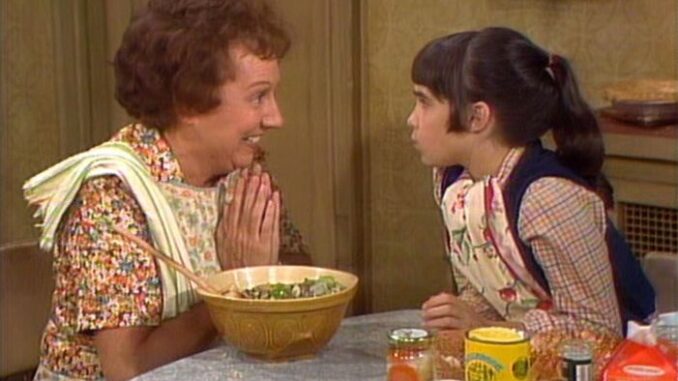
Jean Stapleton, best known for her role as Edith Bunker on All in the Family, passed away over the weekend, leaving behind a legacy that extends far beyond her iconic character. To many viewers in the 1970s, she was the quintessential working-class housewife, enduring the antics of her domineering husband, Archie Bunker, played by Carroll O’Connor. Stapleton’s performance was marked by a unique blend of humor and warmth, earning her three Emmy Awards and two Golden Globe Awards.
While Edith Bunker was the role that defined her for millions, Stapleton’s career was rich and diverse. She honed her craft in live theater alongside luminaries like Barbra Streisand and Art Carney, even presenting a one-woman show as Eleanor Roosevelt. Together with her late husband, William Putch, she played a pivotal role in running a regional theater, showcasing her deep commitment to the arts.
The news of her passing sparked an outpouring of tributes from colleagues and friends. Rob Reiner, who portrayed her son-in-law “Meathead,” described her as “a brilliant comedienne with exquisite timing,” calling their collaboration one of the highlights of his career. Norman Lear, the creator of All in the Family, acknowledged Stapleton’s ability to impart profound lessons about humanity through her work, stating, “No one gave more profound ‘How to be a human being’ lessons than Jean Stapleton.”
Roseanne Barr echoed this sentiment, remarking on Stapleton’s exceptional range, describing her as “a great actor whose range was unbelievable, deep, and majestic.” Carroll O’Connor himself praised her in his 1998 autobiography, highlighting how her portrayal made his character’s flaws more bearable: “Her idea of Edith Bunker was not only original and perfectly suited to the American audience but very comical and emotionally moving.”
Critics remember Stapleton with respect and admiration as well. James Poniewozik of Time noted that her performance illustrated the strength required to stand up for herself while maintaining peace in a tumultuous household. What initially appeared as submissiveness in Edith evolved into a portrayal of unconditional love, making her a maternal figure for many viewers during a time of social upheaval.
All in the Family tackled a myriad of issues—from the end of the Vietnam War to civil rights and the women’s movement—often using humor as a balm for societal tension. Stapleton once reflected on the show’s ability to address serious issues, stating, “There’s nothing like humor to burst what seems to be an enormous problem. Humor reduces it to nothing and wipes it out.”
Her long-standing collaboration with playwright Horton Foote, which began in 1944, further showcased her range and dedication to her craft. Foote praised her sense of character and her ability to bring stories to life on stage.
In a decade when All in the Family was groundbreaking, Stapleton’s portrayal of Edith Bunker resonated deeply with audiences across America. She became more than just a character; she represented a voice of reason and compassion in a complex world. As we remember Jean Stapleton, we celebrate her remarkable talent and the lasting impact she made on television and theater.
